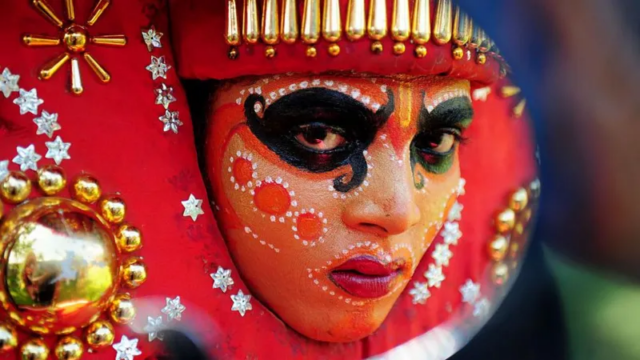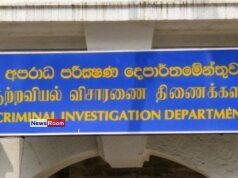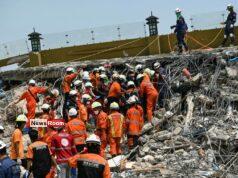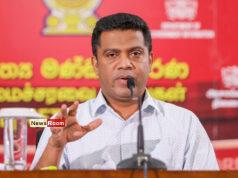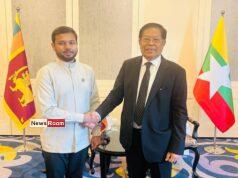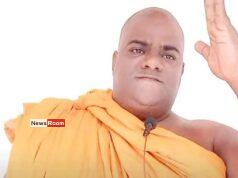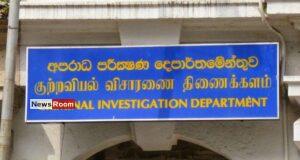by Rajan Philips
If President AKD’s inaugural Policy Statement at the opening of parliament 10 days ago was mellifluous in its delivery, it was also meticulous in detail, and sweeping in its themes and vistas. He literally spoke with words and numbers effortlessly flowing, but without notes or the help of the teleprompter even though he had the text in front of him. It was not soaring oratory but captivating eloquence. More like NM in English; and Bernard Soysa, given the pirivena roots of his education, in both Sinhala and English. Yet as an old Peradeniya friend of mine told me last week, what NM couldn’t do AKD has done. And in more ways than one.
The subtitles in the English text of the Policy Statement are quite revelatory. The middle of the speech, taking nearly half its length, is all about the economy. Naturally so and the economic themes and content are indicative of both the government’s approach to stabilizing and growing the economy, and the President’s studiousness in mastering the file. There is no other practical alternative to abiding by the agreements with the IMF entered into by the previous government, while looking for better agreements in what is left of debt restructuring and, more importantly, for restructuring the economy on a sustainable growth path.
Those who are chiding the government for going along with the IMF would also have been the first people to lambaste it for radical irresponsibility if it had chosen to repudiate the agreement. There are still uncertainties and challenges ahead, but as I wrote last week, there could not have been a better political start for the post Ranil-Rajapaksa era than what is being initiated by President AKD and his NPP government.
The start is even more impressive when one looks at the President’s thematic assertions on giving no room for racism and on building national unity; accepting a multi-party system, restoring the dignity of parliament and building a democratic state; and reforming the public service, affirming the rule of law, and delivering justice to victims of crime no matter who the perpetrators of crimes are. Somewhat of a mundane theme amidst all the lofty ones is about cleaning Sri Lanka. Mundane, but a very crucial and long overdue cleaning initiative.
There are those who are ready to smirk at what they see as the JVP’s fatefulness in having to uphold and abide by a political system that it once strove to overthrow. But such self-amusements are rather superficial, for the real irony is that the JVP is now having to save and stabilize not only the economy but also the political system both of which were undone by the same forces that once unleashed state violence to protect them from the JVP. Equally, there is no need for the JVP to show its democratic credentials to anyone in the west when western democracies are electing the real antichrists of democracy such as Donald J. Trump.
What is strikingly unique about these themes and their contents are their sincerity and seriousness that should be apparent to anyone who would view President AKD’s Policy Statement in a historical perspective and in comparison to presidential declarations and statements that we have had to suffer through in the last 20 years.
No Room for Racism
Of all the themes that President AKD touched on in his Policy Statement, the most path breaking thrust is in the commitment to end racism in Sri Lanka. It needs to be said that Sri Lankans – Sinhalese, Tamils, Muslims, Buddhists, Hindus, Muslims and Christians, do not belong to different races in the biological sense. That race is a social construct and not a biological reality is now universally accepted except for flat-earth counterparts in social studies.
In Sri Lanka, the tradition of identifying Sinhalese, Tamils and Muslims, not to mention the castes among the former two, as different races was conclusively put to rest, at least among social scientists and progressive activists, by the path breaking 1979 seminar on “Ethnicity and Social Change in Sri Lanka” organized by the Social Scientists Association. Kudos for that belongs exclusively to Kumari Jayawardena and Charles Abeysekera.
Yet the term race is commonly used to describe the two (Sinhala and Tamil) linguistic groups and the two religious (Moors and Malays) groups. Especially in the Sinhala and Tamil languages in which the same term(s) is used overlappingly to identify caste, ethnicity and race. Race and racism are also political terms that are universally used to describe and denounce discrimination based on differences of colour, place of origin, language and religion.
The President makes it clear that his assertion that there is no room for racism is really an accusation that there has been too much room for ‘racism’ for too long in Sri Lanka – in the shaping of the country’s political framework and its power structures “along regional, ethnic, or religious lines.” And he goes on “such political divisions inevitably resulted in growing alienation among communities.”
This is quite a perceptive understanding because in many political societies pre-existing social and cultural differences aggravated political conflicts between communities. In Sri Lanka, it has been the other way around. Ethnic differences over every aspect of politics led to a breakdown of relationships between communities. Political differences spanned the entire spectrum of the state and its responsibilities – on citizenship, language rights, representation, and access to land, employment and education.
And the President’s dialectic that racism provokes counter-racism, and “racism in one part feeds and strengthens nationalism in another,” brings to mind a rather combative version of the same sentiment by TULF leader A. Amirthalingam in his maiden speech in parliament, as a 29 year old Federal Party (ITAK) MP in 1956, that it is “communalism of the majority that begets communalism of the minority.”
President AKD is striking a remarkably conciliatory note, and without pointing fingers at this or that community he is drawing on the electoral sweep in which “all communities across all provinces have trusted us and granted us this power.” He is also firm in assuring that his government will not allow “a resurgence of divisive racist politics” or any “form of religious extremism to take root again in Sri Lanka.” And again that no one “will be allowed to use nationalist or religious rhetoric as a means to gain political power in this country.”
Flights of Oratory
Sri Lankan politics has seen flights of oratory extolling national unity and equality for the first 20 years after independence. SWRD Bandaranaike waxed eloquent at the State Council that contributed to JR Jayewardene’s original bill on the national languages being changed to include both Sinhala and Tamil as official languages. Even though he would repudiate the original arrangement as Prime Minister in 1956, SWRD was never unclear about what was needed for Sri Lanka’s unity.
He went poetic envisaging an island that would someday be a “painted ship on a painted ocean.” Colvin R de Silva was polemical and blunter in presaging that with two languages there would be one country, but with one only there could be two of them. NM was inflexible in his stance on the parity of languages, even though it may have cost the Left an election or two, but it held the country together as both Amirthalingam and AJ Wilson would later acknowledge in their obituaries of NM.
There was more of them in the late 1960s. GG Ponnambalam, the father of fifty-fifty, was sincere and genuine when he perorated in parliament that “through fair weather and foul, in sunshine and in rain, I have held aloft the ideal of a united Lanka.” In fact, “from Point Pedro to Point Dondra,” was Ponnambalam’s rhetorical rejoinder to what he called the peninsularity in the idea of Tamil federalism. To sum it up, at the 50th anniversary of Sri Lanka’s independence, President Chandrika Kumaratunga acknowledge on behalf of everyone that “we have failed in the essential task of nation building.”
Now there is a chance for the remaking of a broken nation. President Dissanayake seems convinced of the great opportunity he, his government and the new parliament have, and he seems determined to make good use of it. The rhetorical flourishes of the past were all sincere expressions of individual political leaders. But none of them drew on electoral support from every part of the country and could be backed by the power of the state to the extent that President AKD and the NPP now seem to have.
Put another way, what AKD and his gallant team are manifesting is an organic possibility and not a synthetic experiment. In the past, resolving the inter-ethnic or the national question was attempted primarily through top-down initiatives and consociational (relating to or denoting a political system formed by the cooperation of different social groups on the basis of shared power) agreements. Now the initiative is equally grass-root at the electoral level and committedly government-led at the state level. This new fusion has never been experienced before.
There is authenticity as well, but it is the authenticity of the progressive kind and not the chauvinistic variety of old. So, there is plenty of room for optimism. The prospects are not only pleasing, but those in power are also not vile. At the same time, there is no denying the pitfalls ahead even though there is none that is obvious now. For caution, just look at the fall of the United States of America. From the cloudy heights of post-racial America that Barak Obama briefly heralded to the racial pits of Donald Trump. Fortunately for Sri Lanka, it may be that the country has had its share of Trumps already and is now ready for a new beginning.

